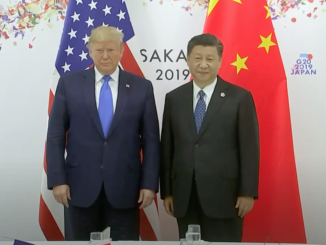
The outbreak of Covid 19 has damaged the role of globalization to a greater extent. One of the major aspects of globalization was the porous borders enabling the movement of goods and people across the borders leading to the interconnectedness of the world. With the emergence of Covid, the role of borders significantly declined because the virus that originated from the city of China (Wuhan) led to a global pandemic within no time. The reason behind the sudden spread of the coronavirus was the porous borders that previously enabled people and goods to move freely. Trade and travel are the vital components of globalization but these also contributed significantly to the global spread of infectious viruses.
In historical times, bubonic plague produced by Yersinia pestis was spread from China to Europe over trade routes. Likewise, the movement of armies in World War I and the influenza pandemic of 1918 led to over 50 million deaths over the world. With the emergence of the global pandemic, the states immediately closed the borders to other states and cut off any sort of access to each other. Lockdowns were imposed upon cities leading to a ban over travel and trade as well. Travel and tourism account for over 10% of the global GDP and is one of the industries affected directly by COVID-19. Several international and national sports, concerts, and conferences have been called off because of the pandemic, instigating massive suffering and losses to the host nation. Moreover, countries are building walls and cannot travel as easily as before. The liberty to travel to any place in the world, flourishing interconnected markets and national economies have been fairly absent since March 2020. Since then, the world has seen travel limitations and quarantines, high unemployment, national lockdowns, and business closures all over the world.
In the post covid era we will have less globalization, even the improvements made by globalization during the pandemic do not apply to underdeveloped states. An underdeveloped country cannot afford to have digitalized passports, currencies, or even online education for the matter of fact that underdeveloped states are still on the verge of high illiteracy rates and dependent upon external finances. In such states where the population is unable to have a know-how of the digitalized world, globalization again proves itself to be a failure for underdeveloped and even developing states like Pakistan, India, etc.
Millions of people around the globe have been living under the poverty line and due to the coronavirus pandemic, people have further been plunged into poverty. Globalization has ebbed and flowed over the years now, but during the global financial crisis in 2007-2008, it was labeled as slowbalisation in “The Economist” magazine. The world has once again entered the phase of slowbalisation i.e., closure of factories, international travel shutdown, countries suspending movements leading to prolonged social distancing. Many now are apprehensive that the free flow of goods may shortly remain paralyzed and globalization might end. As stated by Henry Kissinger “the pandemic will alter the world order forever”. Restrictive lockdowns executed as a response to the pandemic have led to a reduction in consumption, production, employment, and have affected the world economy at a greater level. Predictably, the global economy is likely to produce an economic depression worse and severe than the financial crisis of 2008. This situation is even worse for Low and Middle-Income Countries (LMICs), which have shown a high risk to the demand-side of food insecurity due to low socio-economic status, access issues, and dependency on the importation of food. Developing countries are estimated to observe at least a 3.6% decrease in GDP, with Africa, South Asia, and South America affected the most. Internationally, almost 140 million people are assessed to face life-threatening poverty, which would intensify food insecurity.
The world will see more changes after the pandemic such as the lack of external assistance from other countries may bring humanitarian disaster. The most developed countries soon would possibly be those that can produce social consensus on plans and policies. Exporting states that do not depend on domestic markets are likely to fail, such as India and numerous African nations. Globalization has failed to prove itself during times of crisis, as one of the major critiques upon the phenomena of globalization has been the spread of diseases, refugees i.e., movement of people as well as non-state actors across the borders. The porous borders have not only led to the emergence of a fatal pandemic but as well as a massive loss of economic prosperity as the world was in the realm of interdependence before the covid 19. The borders were shut off with the risk of fearing to deteriorate the security or health of the host states leading to the diminishing of long processed interdependence.
In a nutshell, the world will not be similar in the post covid era, as the state’s nationalism and protectionist policies to save themselves from the hard-hit of the pandemic have not only reversed the whole chain of globalization that has been developed in the past few decades but has changed the overall structure of the world order i.e., the closure of the borders and more of a digitalized world leading to more complications yet again for the undeveloped or developing states. Globalization has always been a phenomenon suitable for the elite class, and it proved to be true in the case when the world was hard hit by the pandemic. The borders were closed to the neighboring and other states, for the increased concerns regarding health risks and security issues. This had a direct and negative impact on the poor class, economies have been damaged to a greater extent, and yet the world has been rushed into absolute poverty. The world would not be similar in the post covid era, one of the damages done to the system holds its roots in the greater dependence and reliance upon globalization.
![]()




Be the first to comment